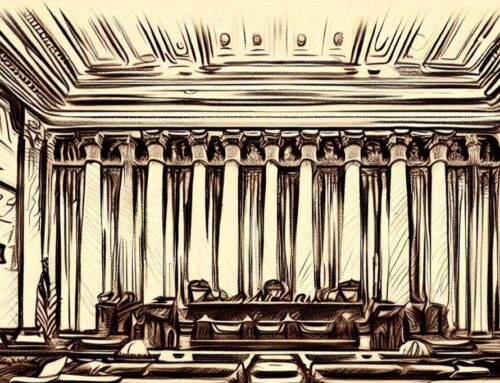What Constitutes a Crime?
In a thought-provoking opinion piece by Stephen L. Carter published in The Washington Post, Carter examines a Supreme Court case involving Medicaid fraud and identity theft that could have far-reaching implications on the interpretation of criminal law. The case’s outcome could redefine the concept of crime and highlight the importance of the right to clear notice of criminal laws.
The defendant, David Dubin, was convicted of fraud after overbilling the federal government for services provided to a patient. While the fraud conviction is warranted, the problem lies in the additional aggravated identity theft charge. This crime requires the defendant to “use” another person’s identity “without lawful authority.” According to the prosecution, Dubin sought reimbursement for an examination he never performed.
Carter points out that this act, though clearly illegal, doesn’t fit the conventional understanding of identity theft. Dubin didn’t claim to be the patient but instead lied about the services provided to the patient. Justices from both sides of the political spectrum expressed doubts about the prosecution’s broad interpretation of identity theft during oral arguments.
As Carter argues, the significance of this case lies in the fundamental principle that individuals should have clear and unambiguous notice of what constitutes a crime. Vague statutes can lead even the most law-abiding citizens to break the law and face punishment unknowingly. To address this issue, the rule of lenity has been developed.
The rule of lenity is a longstanding legal principle that requires ambiguous criminal laws to be interpreted narrowly, with any uncertainty in the law resolved in favor of the defendant. This rule ensures that the government clearly communicates what actions it intends to prohibit.
However, the sheer number and complexity of criminal laws make it challenging for citizens to know precisely what conduct could result in legal consequences. The Justice Department gave up counting federal criminal laws in the 1980s at around 3,000. A January 2023 study by the Mercatus Center estimates the current figure to be 5,199, and that’s just federal law. The number reaches six figures if we include crimes created by federal agencies through power delegated by Congress.
Carter emphasizes that the sheer volume of laws and their ambiguity make it crucial to apply the rule of lenity in cases like Dubin’s. While Dubin isn’t a sympathetic character, upholding the rule of lenity, in this case, would prevent the countless ambiguities in our criminal laws from being subject to the whims of prosecutors. Doing so would reinforce the fundamental principle of clear notice in criminal law and ensure that individuals have fair warning of what constitutes illegal conduct. In order to create a more just and equitable society, we must remain vigilant and demand that our legal system provides fair notice about what actions are criminal.








